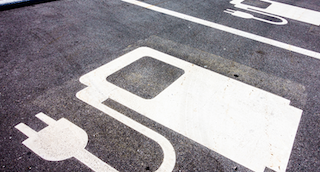Are electric cars really the future? OPINION March 13, 2025
- Ana Cunha-Busch
- Mar 12, 2025
- 3 min read
Updated: Mar 13, 2025

Are electric cars really the future?
If there's one thing we hear all the time, it's that electric cars will revolutionize the world and end fossil fuel pollution. But is this story so perfect? Let's take a closer look.
The not-so-sustainable side of electric cars
Indeed, electric cars don't smoke like gasoline or diesel cars, but that doesn't mean they're 100% environmentally friendly. To start with, battery production requires the extraction of materials such as lithium, cobalt, and nickel, which come from heavy mining. The problem? This process consumes A LOT of water and can devastate entire ecosystems, as well as affect communities living in these regions.
For example, in Bolivia, Chile, and Argentina - where some of the world's largest lithium reserves are located - the extraction of this metal has dried up lakes and harmed the local population. In Congo, where much of the cobalt is extracted, there are serious allegations of child labor and precarious mining conditions. In other words, there's a lot more to this story than meets the eye.
And where does the electricity come from?
Another point that not many people talk about is that an electric car is only truly “clean” if the electricity used to charge it is also clean. In countries where most of the energy still comes from coal or other polluting sources, electric cars just end up displacing the problem elsewhere. It's like cleaning the house and throwing the dust under the carpet.
The problem of battery disposal
Just like solar panels, electric car batteries have a life cycle and, when they come to an end, the question arises: what to do with them? The process of recycling lithium batteries is still expensive and underdeveloped, which means that many end up piled up in warehouses or even disposed of inappropriately.
Electric cars are still a breakthrough, but not a magic solution
Does all this mean that electric cars are bad? No, far from it! They are an important alternative for reducing air pollution in cities and reducing dependence on oil. But for them to be truly sustainable, we need to improve the way we extract materials, invest in recycling batteries, and ensure that the electricity used to charge them is increasingly clean.
At the end of the day, electric cars are still a better option than fossil fuel cars, especially when it comes to reducing air pollution in cities. But calling them sustainable is still an exaggeration, since the production and disposal of batteries has significant environmental and social impacts. If the goal is really to think about a greener future, the most efficient way is not just to change the type of engine, but to invest in quality public transportation, reducing dependence on individual vehicles.
But the challenges of renewable energies go beyond this: both wind and solar energy also have negative effects that are little talked about. Want to know more? Check out the latest edition of my LinkedIn newsletter, where I talk about these impacts in more detail!
What else needs to be discussed about clean energy? Have you thought about the less-talked-about impacts of renewable energies? Let's continue the debate! Leave a comment and share your opinion.
With gratitude, 🌿🌍
Anna Luisa Beserra
Founder, Sustainable Development & Water For All
LinkedIn: Anna Luisa Beserra
SDW: Sustainable Development & Water For All





Comments